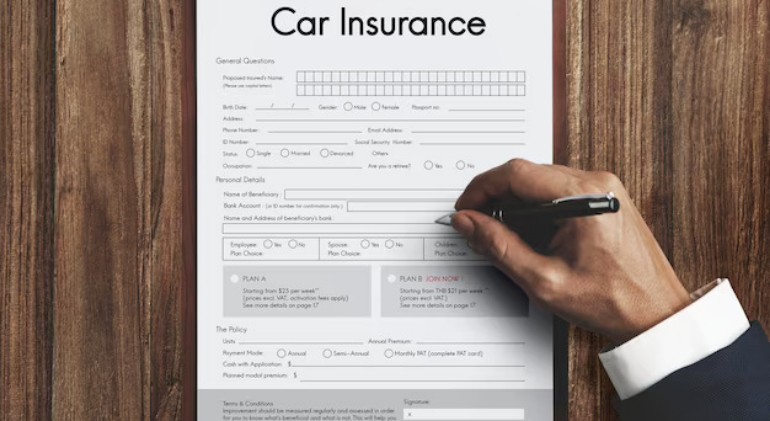102 First FLoor, C&B Square, Sangam Complex, Chakala Andheri (E), 400059

ARTICLES
Types of Car Insurance Coverage Available in India
Listen to this Article

Introduction:
According to the World Health Organization, road accidents claim the lives of nearly 1.3 million people each year, with an additional 20-50 million individuals suffering injuries that can sometimes lead to permanent disabilities. These accidents not only result in personal losses but also impose significant financial burdens on the affected parties, including drivers and passengers. Moreover, the cost of repairing or replacing damaged vehicles can be exorbitant, making it crucial to be prepared for unforeseen contingencies such as natural disasters or breakdowns. Opting for various car insurance coverage options can help alleviate the financial burdens associated with such situations.
Before delving into the different types of car insurance coverage available in India, it is essential to familiarize oneself with the terminologies used in motor insurance:
- First Party: The policyholder who is the owner of the vehicle.
- Second Party:The insurance provider.
- Third Party: The individual to whom the first party owes damages in the event of an accident.
Types of Car Insurance Coverage in India
India offers several types of car insurance coverages that cater to the protection of different parties involved in an incident. These coverages can be further enhanced by selecting additional add-ons. The following are the basic types of car insurance plans available in India:
1. Third-Party Liability-only Coverage
This type of coverage provides financial protection against any liability arising from the death of a third party involved in an accident, medical expenses incurred for treating injuries to the third party, and the cost of repairing the third party's vehicle. As per the Motor Vehicles Act, having this coverage is mandatory for all vehicle owners in India. Failure to comply with this requirement may result in heavy penalties and even imprisonment for up to three months.
2. Own Damage (OD) or Collision Damage Coverage
This coverage pays for the repair or replacement of parts of the policyholder's vehicle when it has been damaged in an accident. The coverage amount is determined based on the Insured Declared Value (IDV) of the vehicle, which represents its current market price. The IDV is calculated by subtracting the depreciation value from the ex-showroom price of the vehicle. Although having OD coverage is mandatory as per the Motor Vehicles Act of 2019, it is typically required for vehicles purchased through financing options.
3. Personal Accident Cover
Personal accident insurance covers the policyholder's medical expenses in the event of injury sustained in a car accident. Additionally, it provides compensation for loss of work due to the accident.
4. Comprehensive Car Insurance
Comprehensive car insurance offers the highest level of protection and encompasses all third-party liabilities, collision damage, and personal accident coverage. It also covers damages resulting from non-collision incidents such as natural disasters (flooding, storms, etc.). This coverage can be further enhanced by purchasing add-ons that provide additional protection.
5. Zero Depreciation Insurance
Zero depreciation insurance is typically an add-on to collision damage coverage. In the event of an accident, the repair reimbursements are usually capped at the Insured Declared Value (IDV) of the vehicle, accounting for its depreciation. However, with zero depreciation coverage, policyholders can claim the full market price of the vehicle without accounting for depreciation.
Tax Benefits for Added Advantage
Term insurance plans provide attractive tax benefits, adding to their appeal as a financial instrument. Premiums paid towards term insurance are eligible for tax deductions under Section 80C of the Income Tax Act, 1961. Additionally, premiums paid for critical illness coverage are also eligible for tax benefits under Section 80D. Furthermore, the sum assured or death benefit received by the nominees is exempted from taxes under Section 10(10D) of the Income Tax Act. These tax advantages make term insurance plans a tax-efficient investment while ensuring comprehensive financial protection for your loved ones.
Conclusion
Insurance companies also introduce additional benefits to incentivize responsible driving behavior. For instance, the No Claim Bonus is a reward offered in the form of a percentage reduction in insurance premiums for the subsequent year if the policyholder does not file any insurance claims in the preceding year.
Also Read: Term Insurance: Securing Your Family's Financial Future
Back to All Insurance Articles
Share This:

